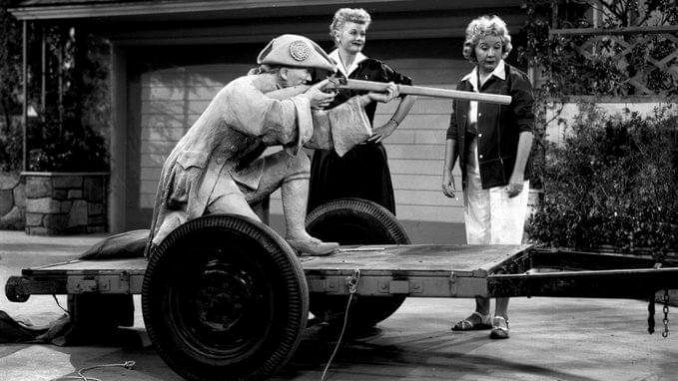
Before women had seats in boardrooms, production credits behind the camera, or creative control over their on-screen roles, one woman quietly — and powerfully — changed the game: Lucille Ball. Best known as the red-haired comedic genius behind I Love Lucy, Ball was far more than America’s sweetheart. She was a producer, studio executive, and industry visionary who broke barriers in Hollywood long before “female empowerment” became a buzzword.
🎭 A Star With Business Savvy
Lucille Ball began her career as a model and film actress in the 1930s and ‘40s, appearing in over 70 films before finding her true legacy in television. But her real power came when she refused to settle for just being the talent.
In 1950, Ball and her husband, Desi Arnaz, co-founded Desilu Productions to produce I Love Lucy. At the time, the idea of a married woman co-owning a studio — much less running it — was virtually unheard of in male-dominated Hollywood.
After her divorce from Arnaz in 1960, Ball bought out his shares and became the first woman to run a major television studio — an unprecedented move that stunned the industry.
🎬 Desilu Productions: A Legacy of Innovation
Under Lucille Ball’s leadership, Desilu became one of the most influential studios in television history. She not only continued producing I Love Lucy, but also greenlit and nurtured projects that shaped American pop culture, including:
-
Star Trek
-
Mission: Impossible
-
The Andy Griffith Show
-
The Untouchables
While these shows may seem like obvious hits in hindsight, they were considered high-risk ventures at the time. Star Trek, for instance, was initially dismissed by many network executives. It was Ball’s belief in the creative vision and willingness to take chances that brought these shows to life — proving her instincts were not only artistic but also fiercely entrepreneurial.
💪 Champion of Women in the Arts
Lucille Ball’s trailblazing efforts were about more than just business. She challenged the limited and often stereotypical roles available to women in media. Her portrayal of Lucy Ricardo was not a one-dimensional housewife but a bold, flawed, ambitious woman who took up space and made her voice heard — often in the most hilariously chaotic ways.
Even behind the scenes, Ball fought for female representation, hiring and mentoring women in creative, production, and executive roles. At a time when few women were in decision-making positions in Hollywood, Ball was quietly shifting the power dynamic.
📺 Breaking Taboos On-Screen
Ball wasn’t afraid to challenge cultural norms. When she became pregnant during the second season of I Love Lucy, CBS executives were hesitant to include it in the show. At the time, even the word “pregnant” was considered too vulgar for broadcast.
Lucille Ball stood her ground. The storyline went ahead (with the euphemism “expecting” used on air), and the episode “Lucy Goes to the Hospital” became one of the most-watched television broadcasts in history, drawing over 44 million viewers.
This moment not only redefined what was acceptable on television — it normalized pregnancy and motherhood on screen in a way that hadn’t been done before.
🌟 A Lasting Legacy
Lucille Ball passed away in 1989, but her impact remains foundational to television and the entertainment industry at large. Today, female producers like Shonda Rhimes, Reese Witherspoon, and Ava DuVernay continue to build on the path Ball carved.
Her influence is felt every time a woman leads a production company, stars in her own series while owning the rights, or takes the reins behind the camera. Her courage to demand both artistic freedom and business power created a new template for what women could achieve in Hollywood.
🎤 “I’m not funny. What I am is brave.” — Lucille Ball
📝 Final Thoughts
Lucille Ball wasn’t just a funny woman in pearls — she was a revolutionary figure who changed the structure of Hollywood from within. She turned laughter into influence, fame into ownership, and challenges into milestones. Her name isn’t just part of TV history — it’s a cornerstone of women’s history in entertainment.
And that’s why, decades later, we’re still not just laughing at Lucy — we’re following in her footsteps.
